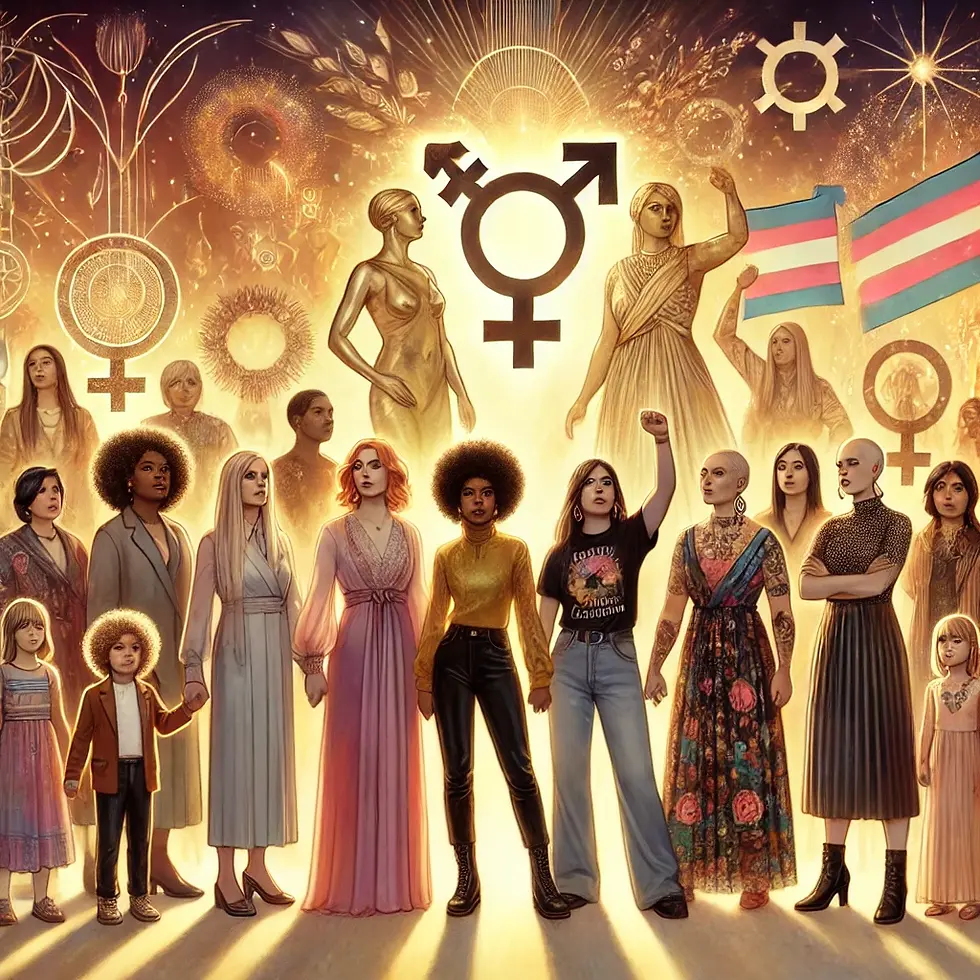
All Women Are Women: Embracing Every Identity in Womanhood
- A HumanKind

- Mar 8
- 3 min read
Womanhood is not one thing. It is not a single story, not a mold to fit into, not a checklist to complete. It is fluid, expansive, and deeply personal.
Too often, society tries to define womanhood in narrow terms—by biology, by tradition, by outdated expectations. But the truth is:
All women are women.
Trans women are women.
Nonbinary and gender-fluid people who identify with womanhood are women.
Intersex women are women.
Women who cannot give birth are women.
Women who don’t fit society’s “feminine” ideal are women.
No one else gets to decide that for them.
The Many Faces of Womanhood
What makes someone a woman? It’s not just chromosomes. It’s not just the ability to give birth. It’s not even appearance.
Being a woman is about identity. It’s about who you are, not what someone else thinks you should be.
There is no single way to be a woman. Some wear dresses, some wear suits. Some have deep voices, some have soft ones. Some fight their whole lives just to be recognized for who they are.
And yet, all of them belong.
When we say all women are women, we mean:
Trans women are not “trying” to be women—they are women. Their experiences are just as real, just as valid, and just as worthy of respect.
Women who can’t have children are not “less” of a woman. Womanhood has never been defined by fertility, and it never should be.
Women who don’t conform to gender norms are not any less real. You don’t have to wear makeup or have long hair to be a woman. You don’t have to “prove” your womanhood to anyone.
There is no gatekeeper to being a woman.
Feminism Must Include All Women
Feminism without trans women is not feminism.
Feminism that excludes queer, disabled, or non-traditional women is not feminism.
The fight for women’s rights is the fight for all women’s rights—not just for cis women, not just for certain body types, not just for the women who fit neatly into what society expects.
True feminism is intersectional. It recognizes that Black women, Indigenous women, trans women, disabled women, poor women, and marginalized women face unique struggles—and that those struggles matter just as much.
We cannot claim to fight for women’s liberation while turning our backs on some of the most vulnerable women among us.
A Future Where Every Woman Belongs
Imagine a world where every woman—no matter how she came into her womanhood—could exist without question, without violence, without being debated.
Imagine a world where trans women didn’t have to fight to be seen.
Where Black women didn’t have to fight to be heard.
Where disabled women didn’t have to fight to be valued.
Where all women were just allowed to be.
This world is not a fantasy. It is a future we can create—through allyship, through education, through refusing to let anyone be erased.
Because when we say all women are women, we don’t mean “all women who fit a definition.”
We mean all women.
Period.
Womanhood is big enough for all of us. Let’s make sure every woman feels at home in it.
Further Reading & Resources:
The Importance of Trans-Inclusive Feminism – UN Women
Intersectional Feminism Explained – Stanford Encyclopedia of Philosophy
Why Trans Women Are Women – GLAAD
The Real History of Feminism & LGBTQ+ Rights – Human Rights Campaign



Comments